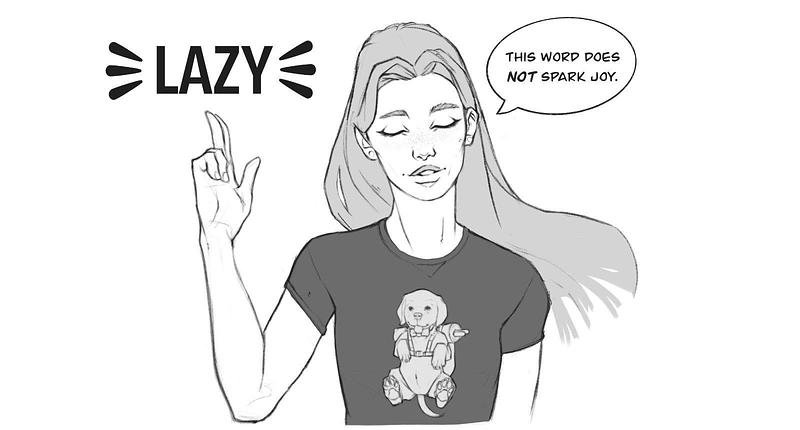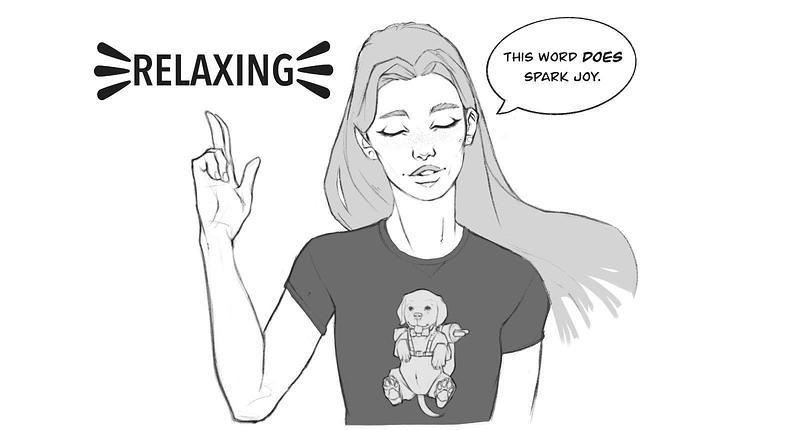
2022-07-30
“Kids these days are so lazy, right?” Heard this before? Well, you’d be surprised to hear how many generations we’ve been parroting this same line.
Research summary written by John Shapiro, Master student at the University of Luxembourg.
Illustrations credit: John Shapiro
* * *
“Kids these days are so lazy, right?” Heard this before? Well, you’d be surprised to hear how many generations we’ve been parroting this same line.
First off, what is laziness? Aside from its etymology, laziness, and many words like it are more importantly used to frame a person’s value in relation to us. How do we measure a person’s value in our highly competitive capitalist world? Usually… By how much they work. Valuing not their humanity but their productivity. And that might be our problem.
Professor Devon Price explains in their book “Laziness Does Not Exist” (https://www.goodreads.com/en/book/show/54304124-laziness-does-not-exist) how dehumanizing calling someone “lazy” is. Because it allows us to completely disregard what is going on in the other person’s life. "Lazy” paints over some real human issues.

Let’s consider the ways “lazy” is often used. Sadly, it is all too often to talk about people of different generations, genders, ethnicities, abilities to free us from the work of actually understanding them.
We might hear it used fairly often to describe our youth. This is a practice which goes back thousands of years. Socrates himself is quoted as having gone on a tirade against the youth of his time.
“The children now love luxury; they have bad manners, contempt for authority; they show disrespect for elders and love chatter in place of exercise. Children are now tyrants, not the servants of their households. They no longer rise when elders enter the room. They contradict their parents, chatter before company, gobble up dainties at the table, cross their legs, and tyrannize their teachers.” -Socrates
And yet somehow every one of these successive lazy generations has led us to the technologically advanced society we live in now. Each one of us was in that generation of “lazy kids”.
Currently it takes the form of several popular memes. Gen-Z and Millennials are quiet quitters, quitting their jobs on the slightest whim, spending all their money on espressos and avocado toast. All these paint a damning picture of the youth but it is a stereotype aimed at vilifying young people who, with current technology, are far more productive than previous generations. And this is true as we go back through each generation. Our parents more efficient than our grandparents and so on and so forth.
Let’s dive even deeper into another problematic belief. That we are, ourselves, lazy. We’re so accustomed to this language in our fast-paced society that now, we even do it to ourselves. We could be sitting in bed on a Sunday morning after a 60-hour week and guilt-trip ourselves for being lazy. We’ve learned to use this language to make ourselves feel terrible for being unproductive. In reality, we are negatively framing a human necessity: relaxation. Something we all deserve.

The only thing that is lazy is its use. Because we use “lazy” as a shortcut rather than the complexity of understanding the world around us. Several studies found that the elderly use this shortcut to frame the youth due to a disconnect between the world they grew up in and the world they now live in. For example, statements like “I used to walk 25 kilometers to school in a blizzard” have been shown to usually be exaggerated. More interestingly, the reason the youth no longer has to suffer these hardships is that our elders changed them. They are experiencing the changes they created and washing over them with this vilifying stereotype.
With respect to bilingualism and education, I have personally experienced the dangers of this word both as a teacher and as a student. I remember when I was working as an English teacher in Japan, my co-teacher turned to me and said something along the lines of: “We have a foreign student, he doesn’t put in the same effort as the other students. So don’t expect much out of him”. I shuddered. As a teacher, it is so important to understand how our prejudices impact our students. They often act as self-fulfilling prophecies (see additional readings). But mostly I shuddered because I had also been a foreign student struggling with a new language at my primary school in Belgium. I remember this feeling of being in a thick fog as people around me spoke a different language than my own. Most teachers just graded me accordingly but I commend the effort of teachers who saw beyond the shortcut that “lazy” offers. It allowed me to flourish. And that student in Japan, I also remember the moment I saw the fog drop from his eyes as he became a confident member of his class because I refused to empower the idea that that student was lazy.
And so, I want to take a moment to consider what may be invisible to many of us. Let’s take a moment to consider the repercussions of using the term lazy to paint an individual that may have a lot more going on beneath the surface. All too often, we use the term “lazy” in moments such as these to wash away the reality of suffering so that we ourselves don’t feel the discomfort of our society. And even still, we put it on ourselves (leading to our own burnouts) instead of considering the impossible societal expectations we have for ourselves and others.
And so, I hope we can see how “lazy” perpetuates these really dehumanizing ways of thinking of our neighbors and ourselves. It is not just about removing the word from our vocabulary but understanding and making the effort to remove its prejudice.
(Dedicated to those teachers: Madame Planchon & Monsieur Thierry of ISMA and all others who see beyond the veil of laziness)
***
Further reading:
The article is part of the initiative Student Ambassadors of the Multilingual Experience. Our students have prepared some interesting topics for you – just scroll down the project page to the section "News“ – you will find more blog posts to enjoy!).
